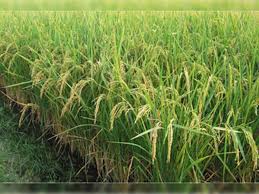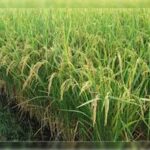Free Trade Agreement Between India and the UK to Boost Export of Uttarakhand’s Basmati
Basmati Arrived in Dehradun from Afghanistan Around 180 Years Ago
Dehradun: Now, the fragrance of Doon’s Basmati rice will waft across Britain as well. Farmers in Uttarakhand will benefit from the Free Trade Agreement (FTA) recently signed between India and the UK. This agreement has fueled hopes of increased export of this exceptional rice variety. Naturally, if incomes rise, farmers will also be more inclined to expand production. At present, however, the situation is such that the cultivation area of Dehradun Basmati is steadily declining. In 2018, it was grown on 410.18 hectares of land in Doon, but by 2022, that had shrunk to just 157.83 hectares.
Let’s also take a moment to explore the history of Dehradun’s Basmati. Although Basmati rice is cultivated in Haridwar, Udham Singh Nagar, and Nainital districts of Uttarakhand, there is something uniquely special about the soil of Dehradun. Interestingly, Basmati did not originate in Dehradun. Nearly 180 years ago, it made a long journey of thousands of miles from Afghanistan to reach here. The person who brought it was the then ruler of Afghanistan, Dost Mohammad Khan. When he came here to live in exile, he brought along Basmati seeds. Though foreign in origin, the seeds adapted so well to the local soil that the quality of the rice improved manyfold. Its aroma became so enchanting that entire villages would be engulfed in its fragrance. Thanks to its sweetness, aroma, and taste, it soon became a favorite among connoisseurs. It is said that at one time, Basmati was grown on 2,200 acres.









